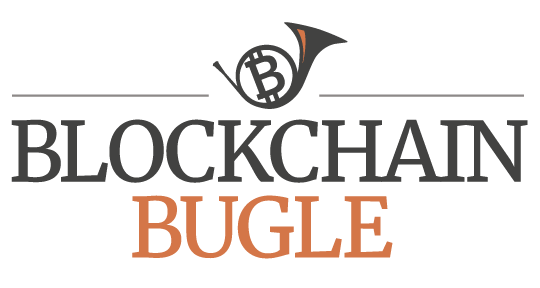Scotland Aims to Be "at the Heart of the Future" of Blockchain Technology

Known for its kilts and bagpipes, golf courses and quality whiskey, Scotland is a country full of traditions. It is also rapidly emerging as a burgeoning hotbed for blockchain technology, known for its disruptive potential in creating innovative solutions for the world of business and commerce.
In recent months, robust activity on the part of Scotland’s blockchain community has ignited a flurry of activity and a bright outlook. In fact, the pace of advancement is moving along at a fast clip, delivering meaningful use cases and promising business solutions to the cause.
SCOTEX, the blockchain-powered stock exchange expected to launch this year is arguably the biggest example of the momentum taking place in Scotland. Supported by a consortium of ex-NASDAQ and Scottish investors seeking to raise over $18.4 million (£15 million) for the project, it could become the first independent exchange in the country since the early seventies.
By integrating blockchain technology, SCOTEX will allow for the clearing of all trades instantly, eliminating the need for an often costly clearinghouse. It is expected that stakeholders will receive settlements within 15 minutes of trade execution, a process that in conventional financial exchanges can take anywhere between two to three days.
This adoption of blockchain technology on the part of existing stock exchanges is not a new thing. Exchanges such as the Australian Securities Exchange, NASDAQ and others have already created blockchain-based trade-settlement systems that serve as a model to work from.
What’s somewhat unique about SCOTEX, however, is that it will be the first stock exchange to utilize distributed ledger technology from its inception. This will allow it to serve as an interesting test balloon in terms of blockchain technology’s long-term viability and utility in the global financial arena.
Another signal of Scotland’s accelerated interest in the blockchain space was the November 2016 ScotChain16 event in Edinburgh. This well-attended event brought together business leaders and entrepreneurially minded blockchain enthusiasts from across the globe. The Royal Bank of Scotland (RBS), which hosted the event, is among 36 banks globally that are testing blockchain technology’s utility for commercial paper transactions.
Flocking to Blockchain Technology
Scotland is also seeing fervent startup activity targeting blockchain use cases. One new entrant to this arena is the full-spectrum digital design consultancy known as Flockchain. Founded in May 2016 and based in Glasgow, the firm assists public and private organizations with integrating blockchain technology toward their UX, cybersecurity and strategic goals.
According to CEO and Co-Founder Phil Doyle, Flockchain’s initial focus is centered around technical and market research aimed at identifying strong blockchain use cases across various market sectors. He says that Flockchain hatched in May 2016 after he and Co-Founder David Kidd had discussed the merits of blockchain and distributed ledger technology at length for weeks, reading and watching everything they could get their hands on. Excited by the potential of blockchains, they decided to pursue a strategy for promoting awareness of the technology while raising the industry’s profile.
Says Doyle: “We are working to accelerate the adoption of blockchain [technology] through training programs that deliver a pipeline of skilled developers into the industry, engaging with government and business to demonstrate value and stimulate buying. Flockchain is excited to be forging strategic partnerships with key organizations to meet these challenges.”
Doyle describes the blockchain community as highly active and engaged in exploring new possibilities. “We ourselves started attending the monthly Scottish Blockchain Meetup in Edinburgh where there are lots of excellent projects and startups being presented to enthusiastic turnouts.”
He also says that there is a lot of cross-pollination with the U.K. “We’ve in fact been doing our own research on the landscape of blockchain [technology] in the U.K. and have discovered that there is a lack of skills in the market to drive many blockchain projects forward. There is also a general lack of awareness of what [a] blockchain is and how it can transform business and government.”
One bright note about Scotland, Doyle says, is that the government has a progressive policy structure around new technologies. And with the country having a highly developed tech sector with a particular focus on the Internet of Things (IoT) and data science, he says that blockchains fit very nicely within that landscape.
Paul Forrest, Chairman of Glasgow-based MBN Solutions — a leading people solutions, recruitment and search enterprise for blockchain and other sectors — says that the technology is high on the agenda for Scotland’s business and technology communities. He says that this interest is not just limited to use cases and applications in and around the fintech arena. “We have already seen ab initio ventures from the world of healthcare and the legal sector set out their stalls in Scotland to explore the prospects of exploiting Scotland’s mature and well-staffed technology, data and cryptosecurity expertise.”
In 2017 he sees many new ventures capitalizing on Scotland’s strengths around data science and healthcare, and anticipates further progress in and around payments and identity management, based on activities disclosed by the likes of the country’s financial services heavyweights.
Concludes Forrest: “For Scotland to succeed as a center of blockchain excellence it is critical that use cases continue to mature and that build capability continues to grow. Bringing these two pillars together will support the creation of a rich skills environment fueled by a genuine appreciation for the art of the possible and thus place Scotland at the heart of the future of blockchain [technology].”


